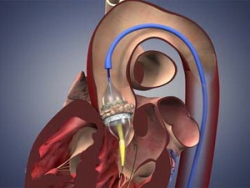| Today is day #3 of our series on thought leaders in education. We feature New York Times columnist Tom Friedman who outlines the reason why education needs a dramatic overhaul.
The world is changing at an unprecedented rate. What jobs will today’s students be doing in 20 years? Are our schools coming even close to preparing them? In an entertaining speech at the IBM Think Forum, Tom Friedman gives us this equation: Globalization+ Information TechnologyCheap GeniusHe says, “The implication for the workplace and then for education is going to be enormous. This is ultimately an education challenge.” He goes on, “What’s really interesting, exciting and terrifying is that it’s not enough anymore to just say ‘I’m non-routine, I’m a lawyer, accountant, engineer.’ Now you have to be a creative non-routine worker. Everyone has to bring something extra to this world because average in a hyper-connected world is officially over.” In asking different types of employers what they are looking for in an employee he found that all were looking for critical thinking, reasoning, problem-solving plus people who can invent, reinvent and re-engineer their job while their doing it. Many thought leaders conclude that the most important thing we can be teaching students in preparation for this world are skills: creativity, problem-solving, etc. They almost seem to assert that we should throw out the traditional subjects and just have students making things and exploring the bounds of creativity. But that might be onlypart of the picture. Consider this: What would students need to be able to do for this type of factory work? Nothing too complex. Compare that to what students would need to be able to do to create an artificial heart valve:
They would need to be able to combine what we already know about hearts and artificial arteries and then, most importantly ask the right kinds of questions and conduct the right kinds of experiments in order to figure it out. This is disciplinary thinking in the field of science. We don’t need to eschew the traditional subjects — but we do need to move beyond memorizing and regurgitating what experts in the field have already discovered. We need students to think like an expert in the field. That means classrooms should look more like investigative laboratories than rows of desks ready to receive information. The debate traditionally seems to be around this question: “How much do students need to know in order to invent, re-engineer and create?” A better question might be: “What habits of mind and thinking moves do students need to make in order to invent, re-engineer and create?” |


Trackbacks/Pingbacks